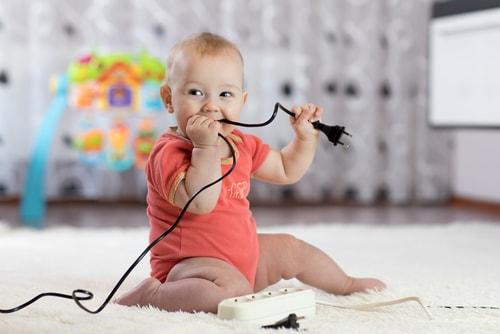What Is Child Endangerment?
 Illinois law is committed, as a general rule, to safeguarding the welfare and the best interests of the state’s children. Parents’ interests are subordinate to the rights of children to have safe and loving homes, which is why any allegation of child abuse, neglect or endangerment is taken extremely seriously by authorities. If you have been accused of child endangerment, it is imperative that you understand the nature of this allegation against you so that you can respond appropriately, regardless of your innocence or guilt.
Illinois law is committed, as a general rule, to safeguarding the welfare and the best interests of the state’s children. Parents’ interests are subordinate to the rights of children to have safe and loving homes, which is why any allegation of child abuse, neglect or endangerment is taken extremely seriously by authorities. If you have been accused of child endangerment, it is imperative that you understand the nature of this allegation against you so that you can respond appropriately, regardless of your innocence or guilt.
Definitions and Examples
Child endangerment is defined under Illinois law as causing or allowing a child to be “placed in circumstances that endanger the child's life or health.” This may sound quite vague, but most judges are not interested in pushing the boundaries simply because in extreme circumstances, anything and everything might be dangerous to a child’s life or health. A fact-finder will be interested in immediately threatening or dangerous actions as a general rule - examples would include leaving a young child unattended for more than 10 minutes, indulging in violent behavior or the use of illegal substances in the child’s presence.
A first offense of child endangerment is usually considered a Class A misdemeanor, with sentence most often being probation if the offender is a parent (if the offender is not a parent, the sentence is liable to be stiffer - up to a $2,500 fine and up to one year in jail - though the maximum is unusual). A second or third conviction rises to a Class 3 felony, and the penalty is the same regardless of whether one is a parent or not - usually a 2-5 year prison sentence, and a fine of anywhere between $500 and $25,000. It is possible that a judge would institute “extended term” sentencing for a third or fourth (or higher) conviction, which might essentially double the prison sentence.
If You Are Accused
If you are accused of child endangerment, it is important to keep in mind that it is only the first step in what can be a long process. Before anything reaches a courtroom, the Department of Children & Family Services (DCFS) will investigate the charges. This must be done within 60 days, and unless your child is deemed to be in immediate danger during the investigation, they will be permitted to remain with the family. If the charges are determined to be unfounded, they will not come to trial, though if DCFS determines there is validity to the charges, a trial will occur and you may wind up having your parenting time either taken away or severely restricted.
Many people do not bother engaging an attorney if they know they are innocent, reasoning that they will be vindicated by the system, but this is simply not always true. If you are accused of child endangerment, hiring an experienced attorney should be your first step. While DCFS personnel will not deliberately mislead you or coerce you, they will sometimes use tactics designed to elicit admissions that may or may not be in your best interests, or sometimes you may wind up stating something that will be taken in a way you did not intend. Having a knowledgeable attorney on your side can help prevent any misstatements or confusion that might lead to severe problems.
Contact Our DuPage County Criminal Defense Attorneys
Child endangerment or neglect is an extremely serious charge that should always be approached with all possible caution, even if you know you are innocent. The talented DuPage County criminal defense attorneys at Kathryn L. Harry & Associates, P.C. will work hard to ensure that you are given the fairest proceedings possible. Contact our office today to make an appointment.
Sources:
http://www.ilga.gov/legislation/ilcs/documents/072000050K12C-5.htm
https://www2.illinois.gov/dcfs/safekids/reporting/pages/index.aspx
 1200 Harger Road, Suite 830, Oak Brook, IL 60523
1200 Harger Road, Suite 830, Oak Brook, IL 60523







